March 11th, 2015 — 2:41am

Bordering Laos, the rural province of Nan is attracting an ever-increasing number of visitors who come to enjoy the scenery and northern culture. The town has become particularly popular with Thai tourists from Bangkok and Chiang Mai.
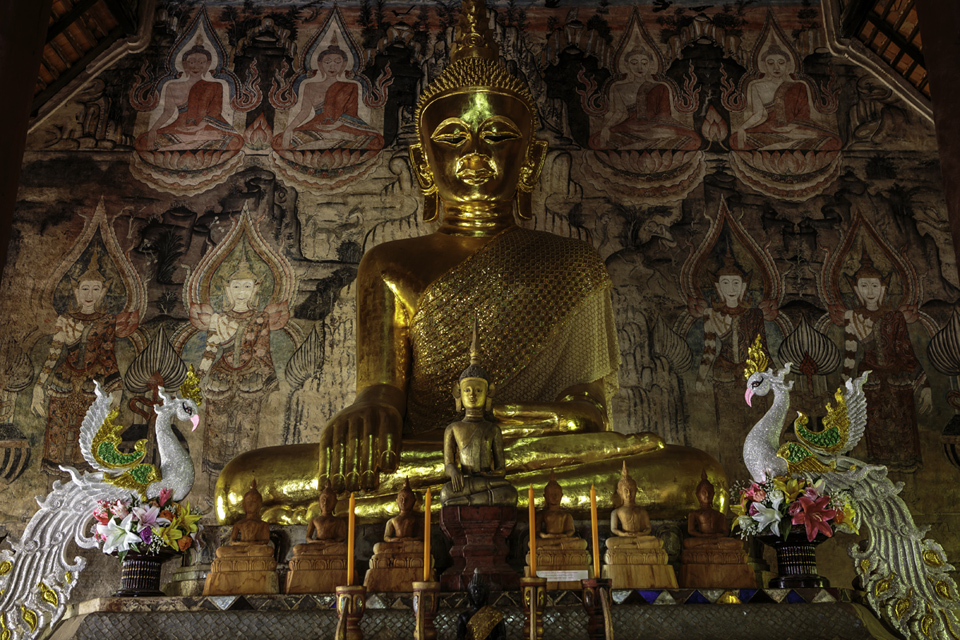
In the town of Nan there are several beautiful temples to discover, and morning and evening fresh markets with a wide variety of northern cuisine. On the weekends there’s also a walking street which also has an area where you can sit down and eat.
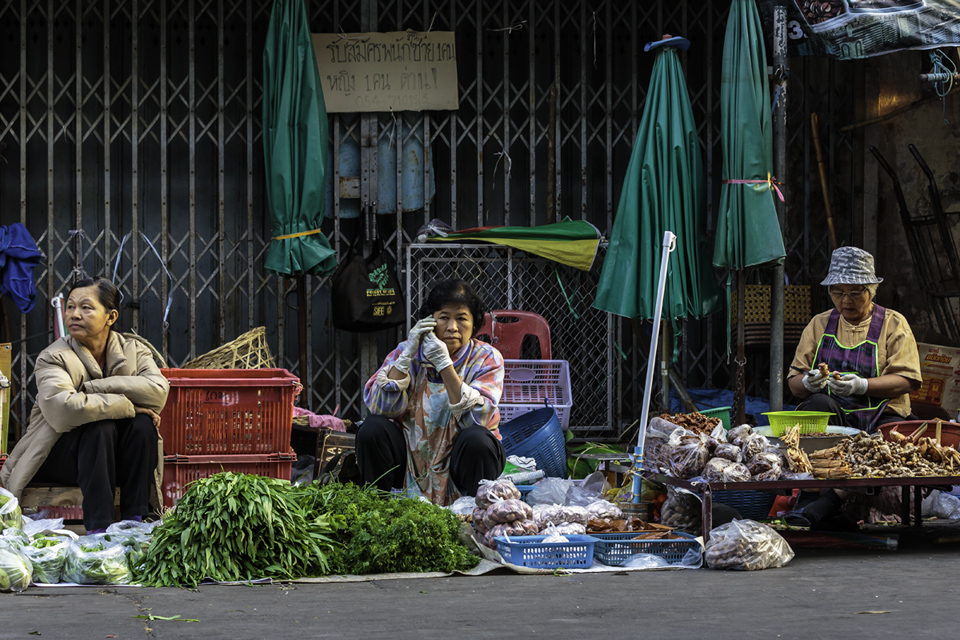
I must say that unlike Chiang Mai the food in Nan is a bit of a disappointment and it’s hard to hunt really good northern food in the restaurants.
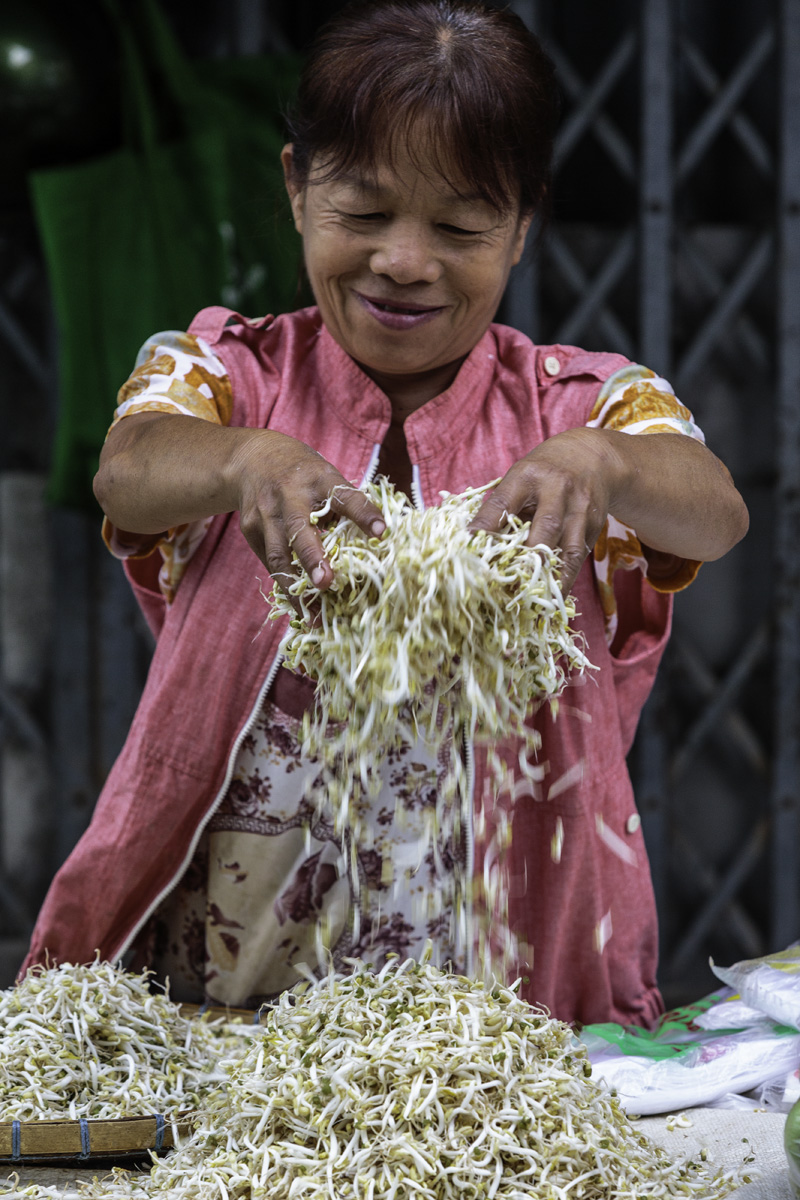
The main attraction for me is the produce in the fresh markets and the extremely friendly locals. It’s a pretty laidback town.
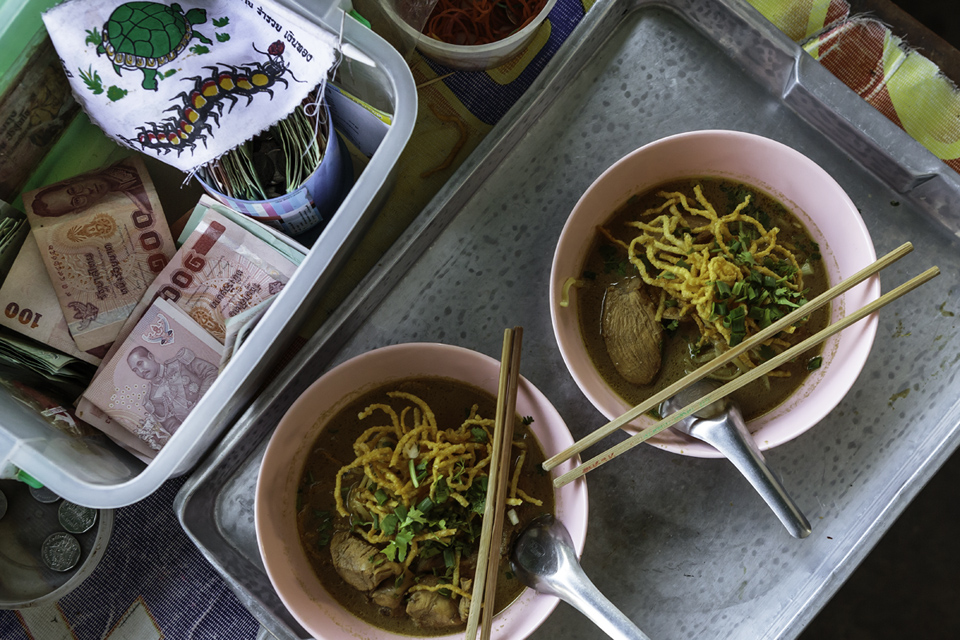
Of course, there’s always the standby of khao soi noodle soup, and some decent sai oua sausage in the evening market.
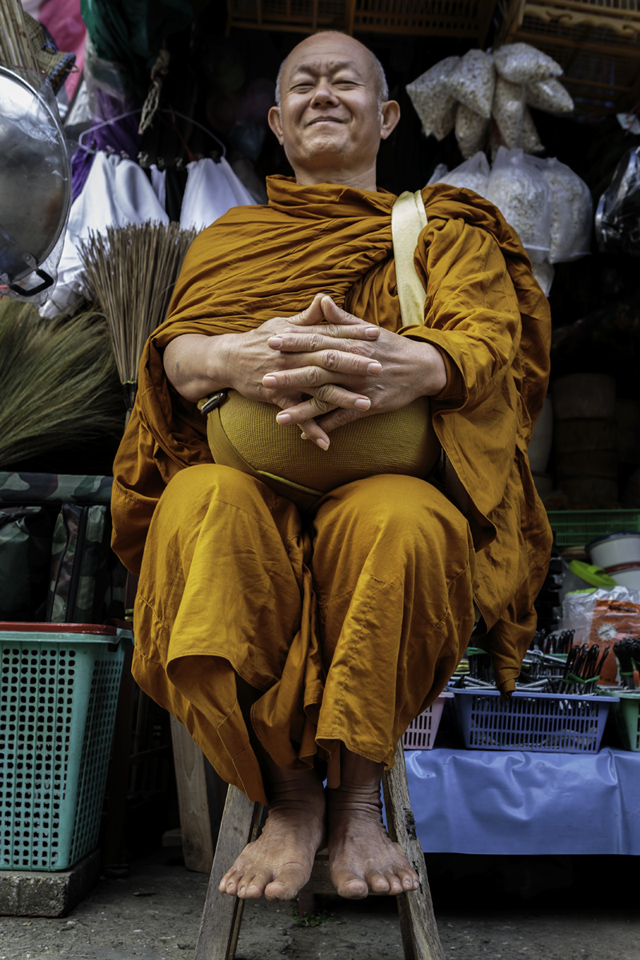
To get the lay of the land, hop on a tram that leaves from the tourist office and then head off on your own. It’s a good town to explore on foot or by bicycle.
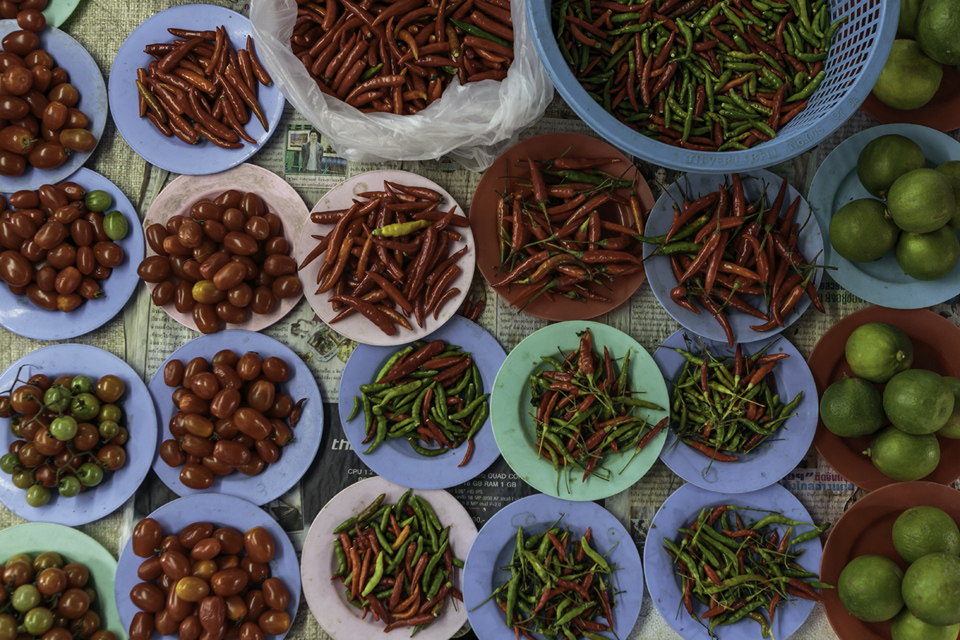
If you are into motorcycling, the nearby Doi Phukha National Park includes several 2,000-m (6,500-ft) peaks and some of the best winding mountain roads in Thailand for motorcycling. Hire a bike in Chiang Mai and come via Phayao, a great little lakeside town en route.
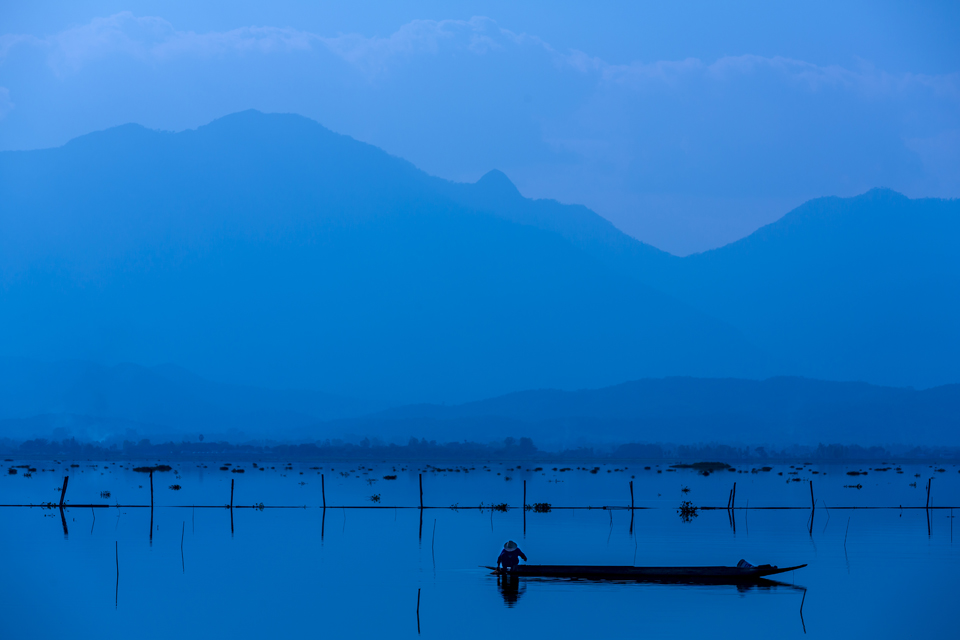
My favourite local airline, Nok Air, flies from Bangkok to Nan.
Comment » | food, places, Travel
June 11th, 2014 — 7:20am
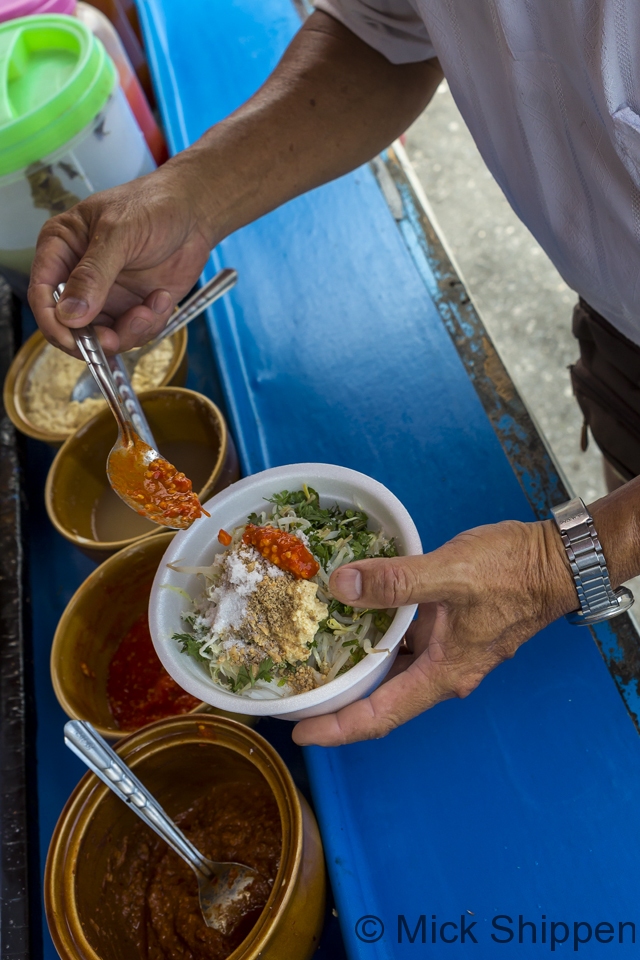
One of the joys of traveling in Thailand is discovering regional cuisine. By default, my first question when checking into a hotel or guesthouse is to ask the location of the morning and evening fresh markets. It’s here that you will get a flavour of local ingredients and delicacies.
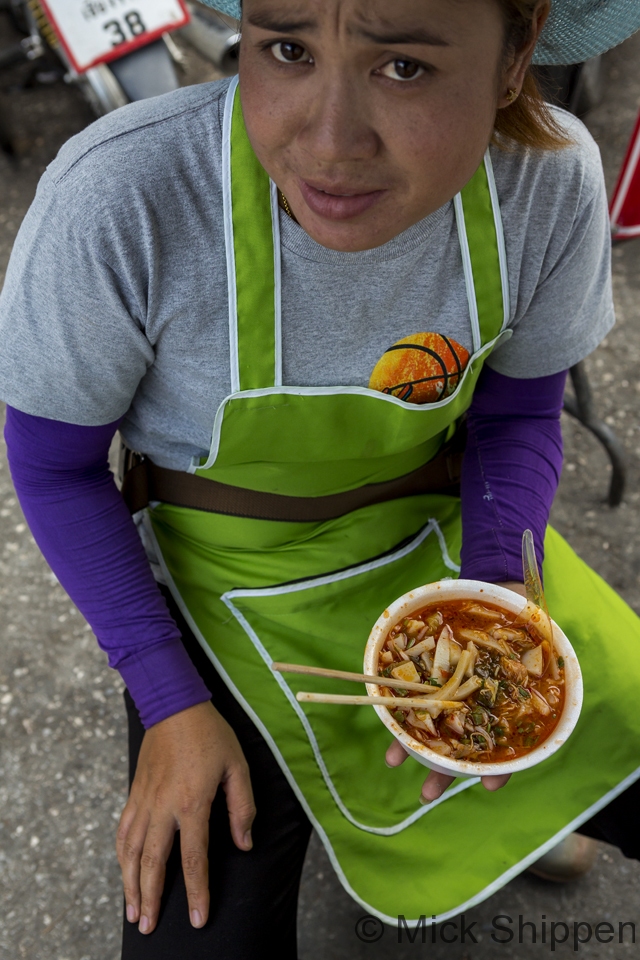
In the northern town of Mae Sai (about 45 minutes drive from Chiang Rai) and surrounding towns, the influence of neighbouring Myanmar abounds at local eateries, stalls and mobile vendors. One of my favourites is khao furn, a dish that is popular in the Shan State where I believe it is called to hpu gyaw. It is a type of tofu made from the flour of yellow split peas and is central to Shan cuisine.
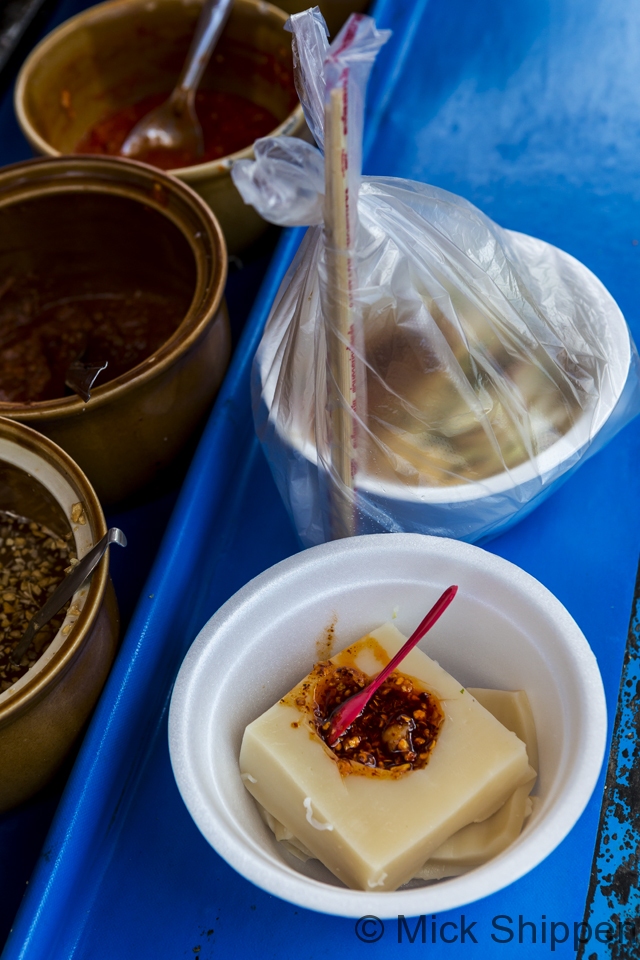
Cut from a soft block, the tofu is served with a variety of condiments to the diner’s personal taste such a pickled vegetables, beansprouts, a liquid made from tomatoes, roasted chilli paste, lime juice, to name a few. It can also be served in a large chunk and is often fried as a snack to accompany other dishes.
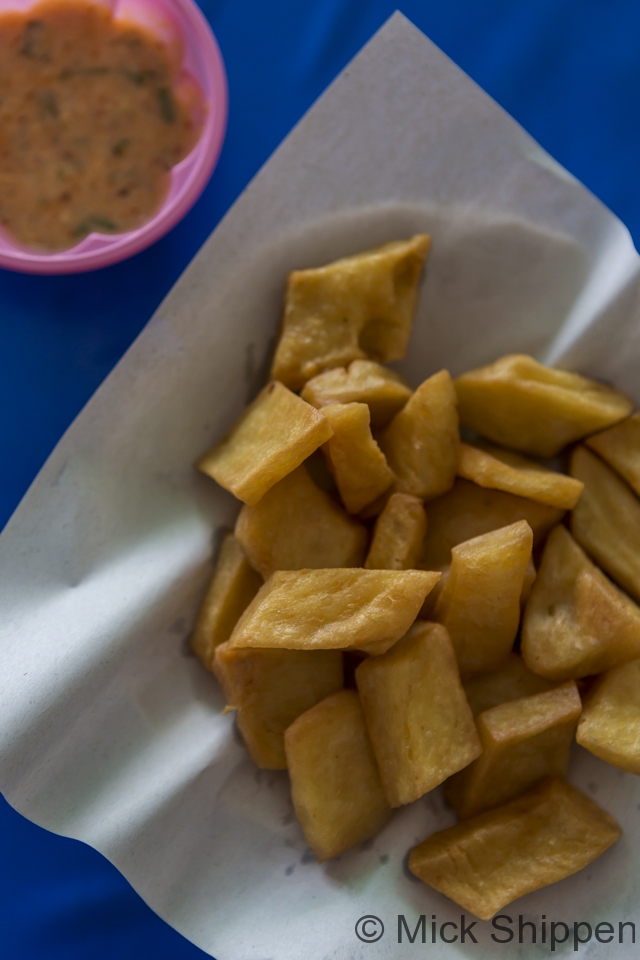
When in Mae Sai there are several places to try the dish, but I always keep my eye out for a lovely husband and wife couple who wheel their cart around, stopping here and there to sell this tasty dish.
Comment » | food, Travel
June 2nd, 2014 — 3:38am
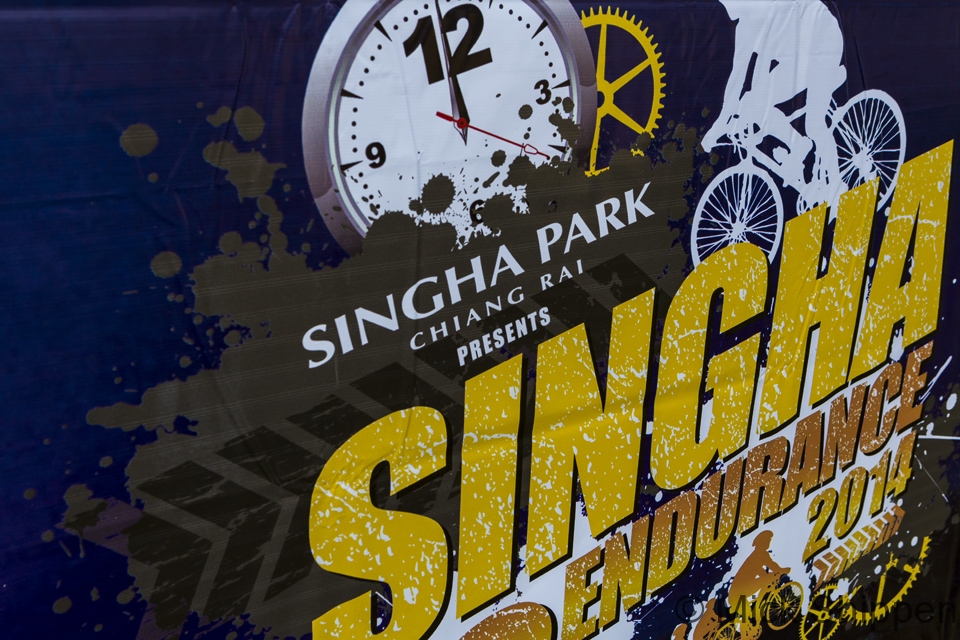
I have just returned from a great weekend in Chiang Rai, discovering that despite the recent earthquake all is well in the lovely northern city. In a momentary departure from my usual topics of food and travel images, I went to see the Singha 12 Hour Endurance 2014, a challenging cycling event that attracted competitors from all over Thailand. It was held at Singha Park, just seven kilometres outside of the city and a popular spot for locals to enjoy the countryside, explore the cycle routes at a leisurely pace, and dine at the restaurant.
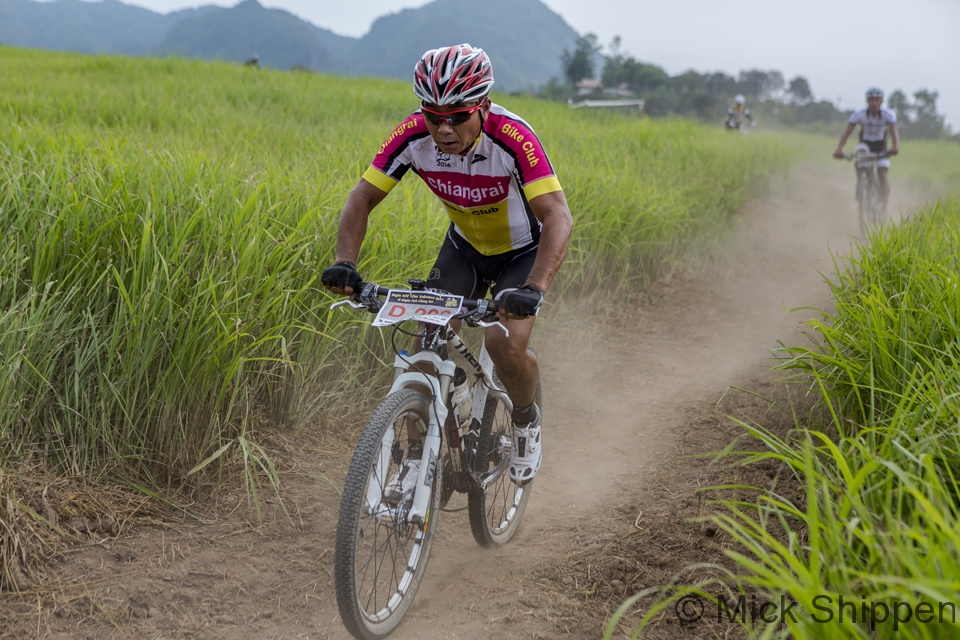
In recent years, interest in cycling has increased dramatically and the Thai beer brand, Singha, now organises a series of major country-wide cycling events. On Saturday, dozens of sports fans donned Lycra shorts and sculptured headgear, mounted some seriously expensive bikes, and battled it out over rough terrain.
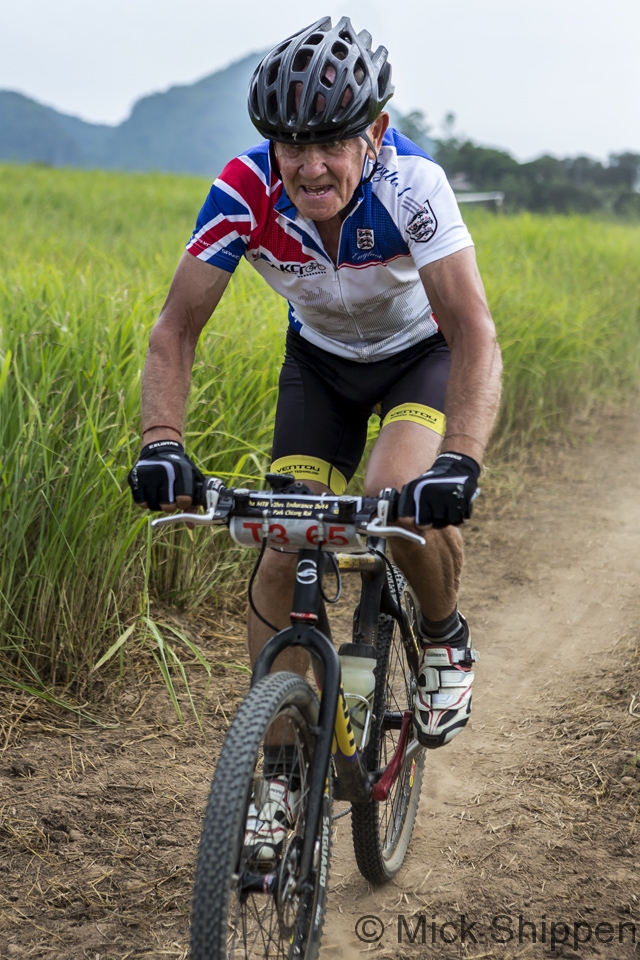
For someone like myself who prefers his bike with an engine, it was exhausting just watching. However, I can see the benefit of slipping a pair of Lycra cycling shorts under jeans on my next off-road motorcycling trip. They are certainly well padded and could save a lot of grief after 12 hours in the saddle!

Singha Park in Chiang Rai is open daily from 7 a.m. – 6 p.m. The expansive park includes tea plantations, a farm, the Barn House Cycle Shop where you can hire bikes, and a series of zip lines. You can find out more information here www.boonrawdfarm.com
I’ll post Chiang Rai highlights later in the week and images of the fantastic northern food and markets the city has to offer.
Comment » | places, Travel, uncategorised
August 7th, 2013 — 5:24am
Phayao is a pleasant northern Thai town that should receive far more visitors than it does. Situated beside a large lake, it makes a lovely place to stop over for a two or three nights on the way further north to Nan. I was last there earlier in the year on a motorcycle trip around the north. At Loy Kratong in November, Phayao is a great alternative to Chiang Mai where the annual celebration has become far too big and commercialised.
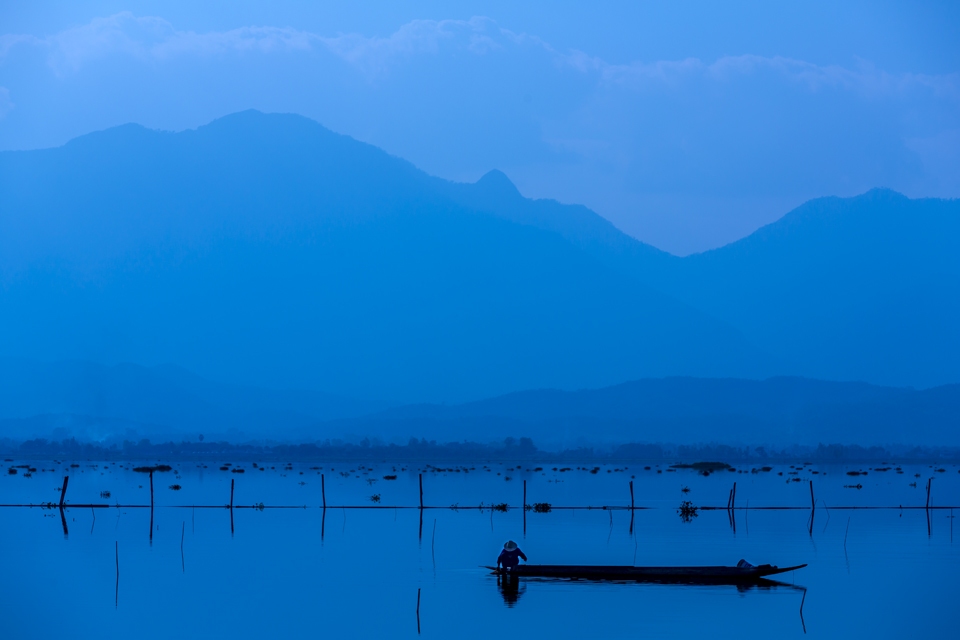
This image of a fisherman laying his nets was captured at dusk and will feature in my latest commissioned book, Enchanting Chiang Mai & Northern Thailand which should be in the shops by October.
Comment » | places, Travel
June 18th, 2012 — 11:41am
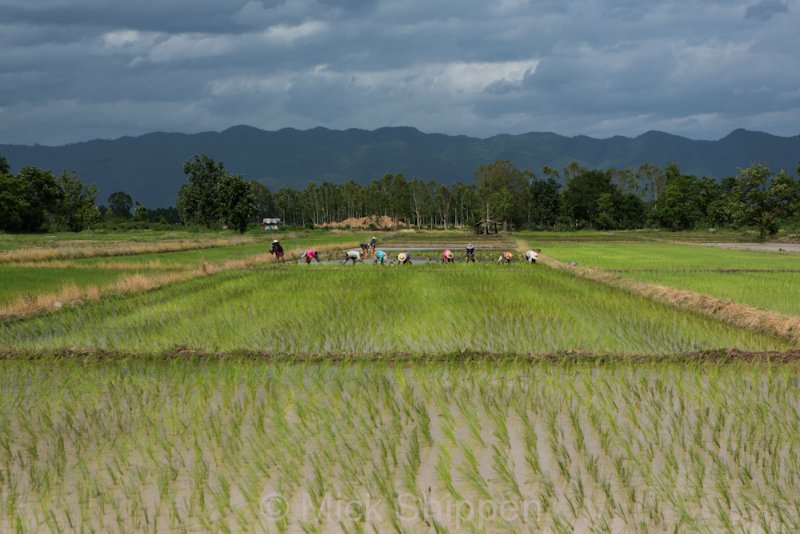
I’ve just returned from four days in Phayao near Chiang Rai in northern Thailand where I was on a photo-assignment for an international grower and exporter of organic rice.
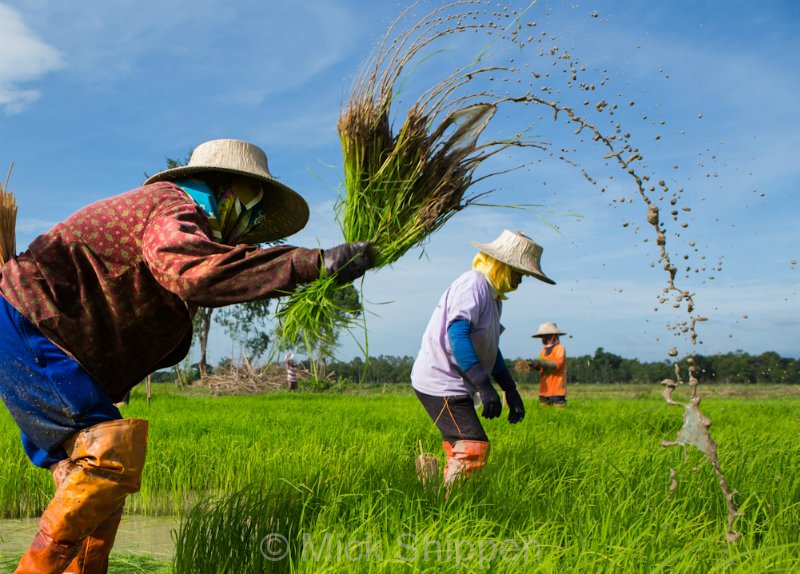
With the rainy season in full swing, it’s time for farmers to uproot the seedlings from the nursery beds and replant in the flooded paddy fields. It’s backbreaking work but a task seemingly enjoyed by the workers and the air is filled with constant chatter, particularly when a farang wades through the mud with a camera slung over his shoulder.
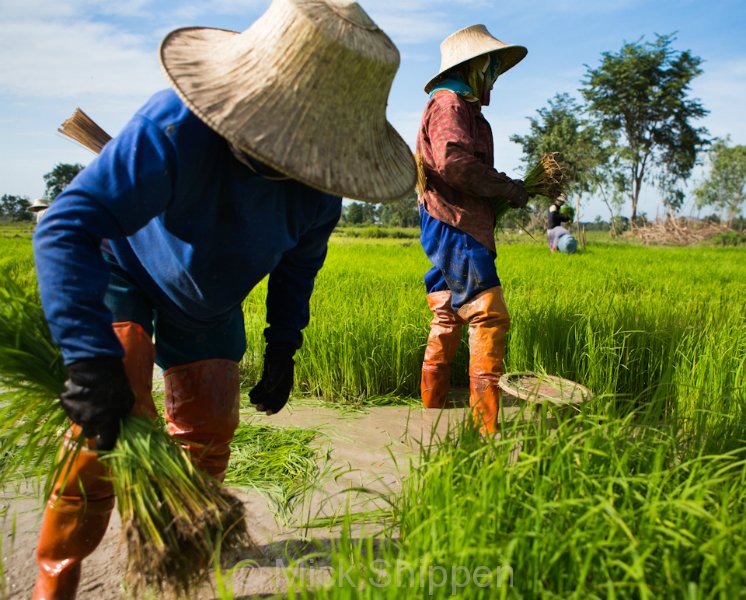
Work usually starts about 8 a.m. and the morning is spent bunching seedlings which are then carried in baskets to a neighbouring paddy where they’ll be replanted in the afternoon.
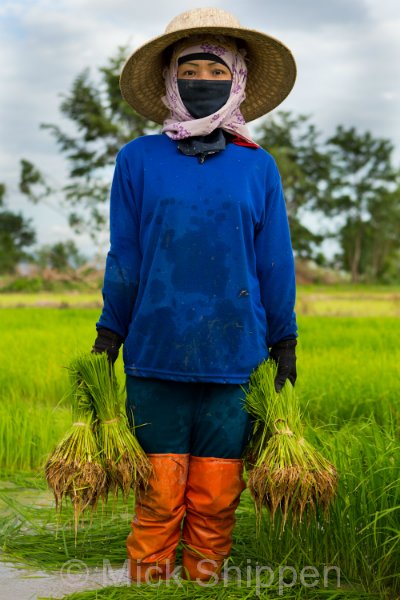
The team are paid one baht a bunch and a good worker can earn 400 – 500 baht a day. Interestingly with one or two exceptions most of them are in their 40s or 50s, even older, as youngsters shy away from the physical labour, preferring easier and cleaner work in the cities. It’s all a little ominous for the future of rice farming in Thailand and although steps have been taken to automate the planting process, it has not yet been perfected and hand planting is still preferred by many.
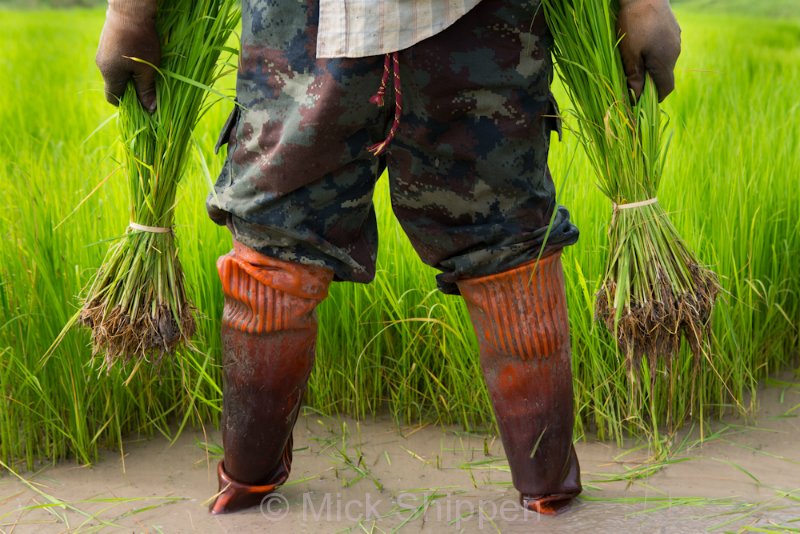
In some areas direct broadcasting is done and no replanting carried out but yields can be up to 15 percent lower. The working day ends around 5 or 6 p.m. with an alfresco bottle of rice whisky to ease aching muscles.
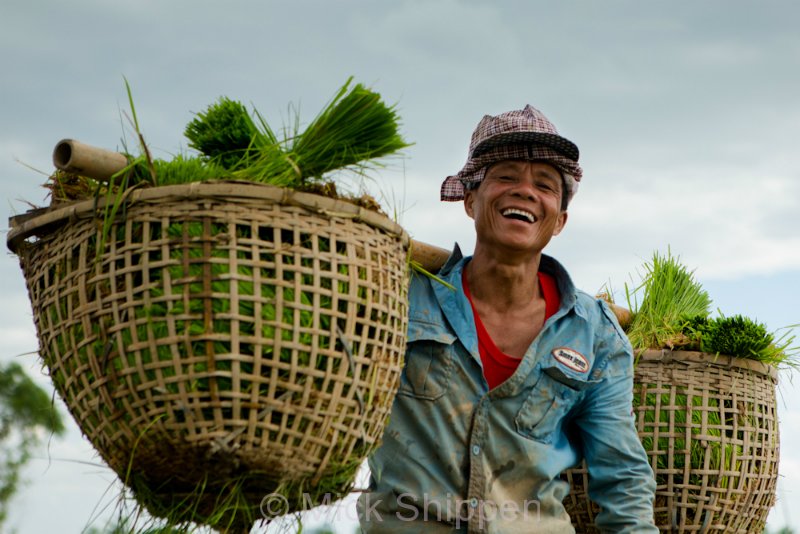
As with any outdoor manual labour in Thailand, the men and woman keep their faces well protected from the sun with scarves and t-shirts. This is particularly important in the rice fields as the sun reflects off the water. When the veils are withdrawn though, there’re plenty of beauties to be seen.
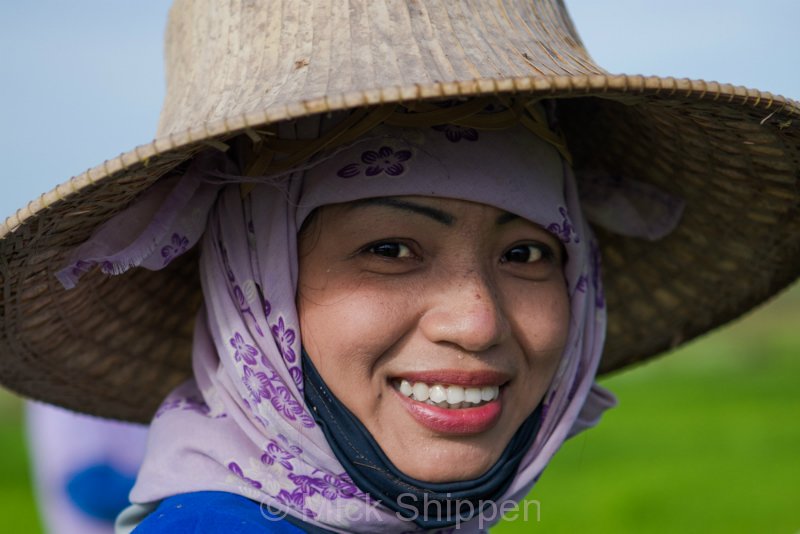
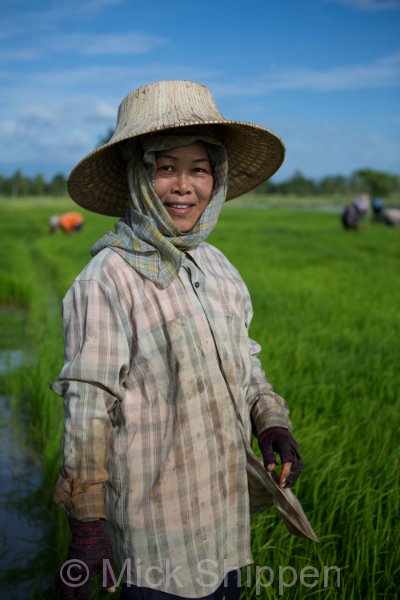
It’s impossible to underestimate the importance of rice in Thailand; a grain that has shaped the landscape and defined the culture. Served at every meal, the preferred choice is jasmine rice, also known as fragrant rice due to it pleasant aroma. In the north and northeast sticky rice or khao neow is more popular. Sticky rice also features in a number of desserts and many sweets are made using rice flour.
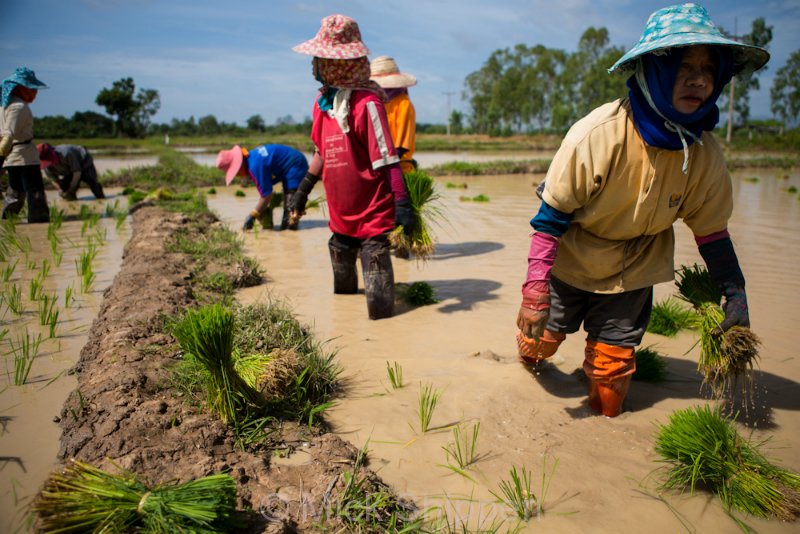
Once you’ve seen the work that goes into rice production, you’ll never feel comfortable leaving any on your plate again. I’m looking forward to returning to Phayao for the harvest in November.
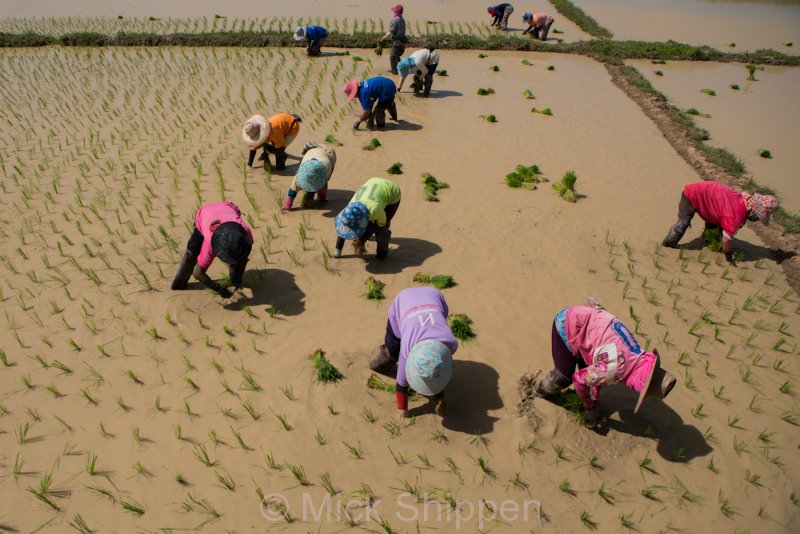
You can view several more images in the Thailand Gallery.
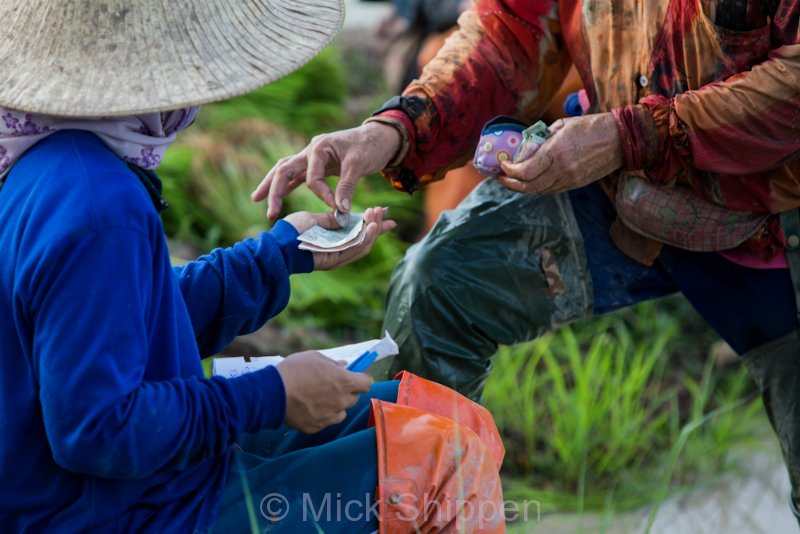
Comment » | food, Travel



























